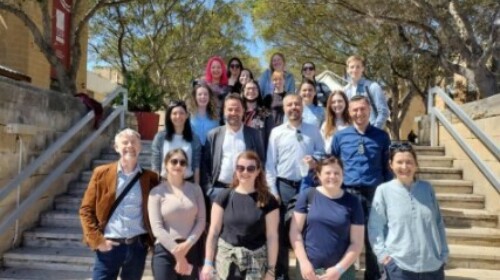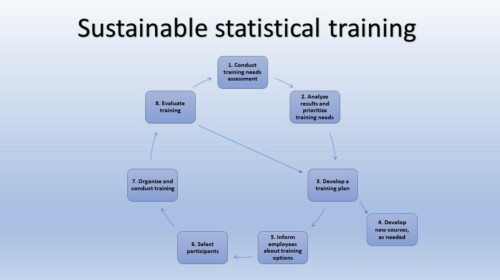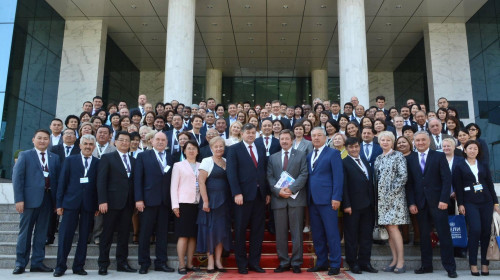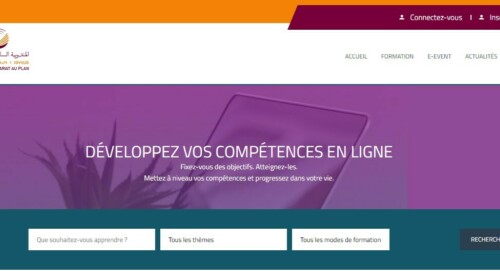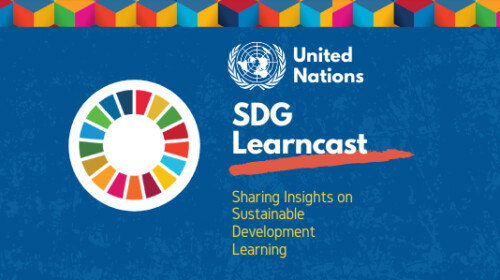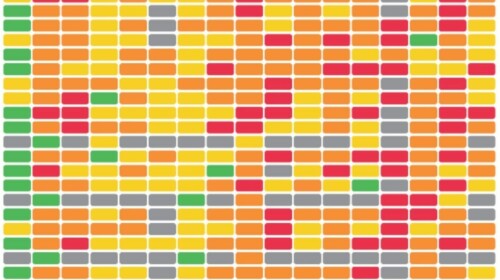As an academic engaged in quantitative global health research and responsible for quantitative methods training for social science students, it is not uncommon to have students (and indeed colleagues) tell me they are ‘allergic to maths’ and ‘avoid statistics at all costs’. This is a reflection of a phenomenon well documented in the pedagogic literature as ‘statistical anxiety’ : ‘the apprehension that occurs when an individual is exposed to statistics content or problems and instructional situations, or evaluative contexts that deal with statistics’ (Macher et al., 2015, p. 1). Such anxiety has been linked to a lack of confidence, particularly amongst students with a limited mathematical background and/or who have had bad experiences of mathematics teaching earlier in their education (Hodgen, 2010). Additional barriers to engagement in data education can be a simple lack of interest and perceived relevance to their aspirations (Carter et al., 2017, Chamberlain et al., 2015).
However, at the same time, many of the same individuals have ambitions to contribute to global social justice. Sustainable development is amongst the areas seeking to harness the potential of the rapidly growing quantity and forms of data available globally - as exemplified by the United Nations calling for a ‘Data Revolution’ in development and a target in the Sustainable Development Goals explicitly on statistical capacity and data availability (Goal 17, Target 18). Human skills and judgement play a critical role at all stages of working with data from the data collection and decisions over categorisation, to interpretation and visualisation, to communicating often complex findings to non-specialists. Therefore, there is a clear need for individuals with training in real world issues and critical thinking skills to engage with data - the very same groups of social science students and academics that may be sceptical about statistics.
Having swapped stories of ‘statistical anxiety’ amongst students and colleagues with research collaborators from around the world, it was clear to me that it is an international issue – and that in itself might be part of the solution. Thus the ‘Development Counts’ project was born: an initiative which aimed to address statistical anxiety head-on by combining data skills training with the opportunity to work in international teams – another critical skill for those seeking to make a difference globally, and one which is often more sought after and relished. The project brought together teams from Gazi Üniversitesi (Turkey), L-Università ta’ Malta (Malta) Universidad Nacional de Educación a Distancia (UNED, Spain) and my own institution – the University of Gloucestershire in the UK - to work on creating these opportunities for our students and in doing so grow enthusiasm for using data and data skills to support global social justice. The project was generously supported by the ERASMUS+ programme of the European Union. Partners were deliberately chosen to ensure socio-economic and cultural diversity amongst those in countries eligible for ERASMUS+ funding. We’ve also ensured the project initiates conversations on data training for development across world regions, through outlets like this blog.
Addressing the issue that learners often do not see the relevance of data skills to their aspirations, the project began with expert in-depth interviews with development professionals about current and future data skills needs. This enabled us to design the learning programme to meet those needs and very clearly link the content to employer preferences for learners so they could appreciate its value for their development. Key insights from the interviews were:
- A consistent acknowledgement of the potential of data & that greater use of data ‘is coming’
- Enthusiasm for the potential of data science but also a clear need for broader data literacy
- Varied views on preferred software, but emphasis on widely available programmes particularly Microsoft Excel and open source programmes such as R
- High value attached to effective data visualisation & communication to non-specialists
- Data skills are only useful if they are grounded in real world contexts
A full analysis of the interviews has been published in Open Access format in the Journal of International Development: Bringing about the data revolution in development: What data skills do aspiring development professionals need?
These insights formed the foundation of the learning programme. One of the interviewees encouraged the team to ‘open the appetite’ of future professionals to the possibilities of data for global development – mastering some basics and developing confidence to deepen and expand their skills in the future as what’s possible to achieve with data evolves. In a rapidly changing data landscape and against a backdrop of a common lack of confidence working with data amongst learners, the project team thought this was a great metaphor for what the programme should try to achieve. ‘Opening the Appetite’ became the theme for the programme – with each module relating to a stage in preparing a meal:
1) Opening the Appetite: What’s the potential of data skills for global development?
2) Assembling the Ingredients: How can we source data?
3) Preparing the Meal: How can we analyse and visualise our data?
4) Digesting the Meal: How to communicate our findings and ensure they are used for high quality decision making?
5) Still Hungry: Where can we find resources to further develop our data skills?
There are three components to delivering the modules:
- PART 1: Online self-study course organised into 5 modules to introduce key material
- PART 2: Online live tutor-led activities to extend and consolidate learning from self-study modules and support team building
- PART 3: Activities to support learners to complete remote team projects, applying their learning to real world development data scenarios whilst developing cross-cultural teamwork and communication skills.
The programme was designed for groups of undergraduates students from different institutions to complete together online over a one-week period. However, it is also possible to mix and match the parts of the learning resources that are most suitable, and the resources may appeal to others interested in data for development learning too.
All parts of the training programme were piloted in September 2021 with students at the project partner universities. Undoubtedly the opportunity for international collaboration was a key reason we received many more applications from excellent candidates than we were able to offer places on the pilot programme to. However, once we had students on board for the pilot programme, much of the fantastic feedback we received noted the mix of developing technical data skills with opportunities for international collaboration – highlighting that this is a recipe for success in enthusing non-specialists about data and data skills for global social justice:
“The course was beyond perfect. I really enjoyed working on R although it was challenging. The lessons were simple and fun.”
Ayana Onurlu, pilot programme participant & undergraduate student at Gazi Üniversitesi, Turkey
“It has been a very interesting experience! I would like to highlight the international aspect of the course. It has been very satisfying to work with people from different countries. In addition, we have been able to deepen a relevant project with current and real problems. A very dynamic and well-organised training.”
Elena Dacal Picazo, pilot programme participant & undergraduate student at Universidad Nacional de Educación a Distancia, Spain
“The style in teaching data made it more interesting and being given chances to work internationally on data is something I think many people would benefit from”
Molly Gregory, pilot programme participant & undergraduate student at the University of Gloucestershire, United Kingdom.
As well as benefiting the students, the project created new connections between academics at the partner universities and enabled us to share data skills – learning new techniques from each other, as well as strategies for overcoming ‘statistical anxiety’ in our students and colleagues. Following the pilot, the programme has been refined based on student and staff feedback before being made available on the project website and the UN SDG:Learn platform in English, Spanish and Turkish.
* Dr. Rachel Bennett is a Senior Lecturer in Human Geography at the University of Gloucestershire, specializing in population health and migration in Sub-Saharan Africa. Rachel led the ERASMUS+ funded Development Counts project which focuses on developing data skills for global development careers.
References
Carter, J., Brown, M., & Simpson, K. (2017). From the Classroom to the Workplace: how social science students are doing data analysis for real. Statistics Education Research Journal, 16(1), 80– 101.
Chamberlain, J., Hillier, J., & Signoretta, P. (2015). Counting better? An examination of the impact of quantitative method teaching on statistical anxiety and confidence. Active Learning in Higher Education, 16(1), 51– 66.
Hodgen, J. (2010). Is the UK an outlier? An international comparison of upper secondary mathematics education. Nuffield Foundation.
Macher, D., Papousek, I., Ruggeri, K., & Paechter, M. (2015). Statistics anxiety and performance: Blessings in disguise. Frontiers in Psychology, 6, 1116.


